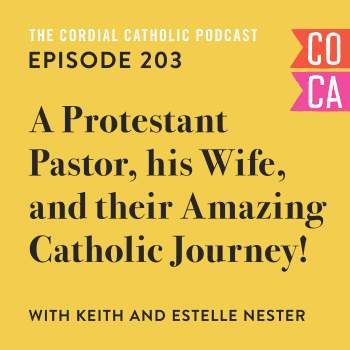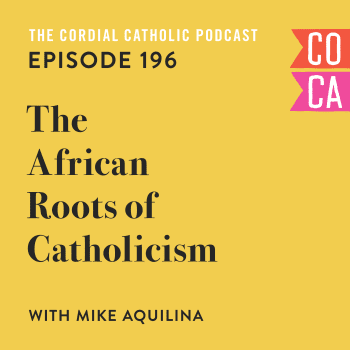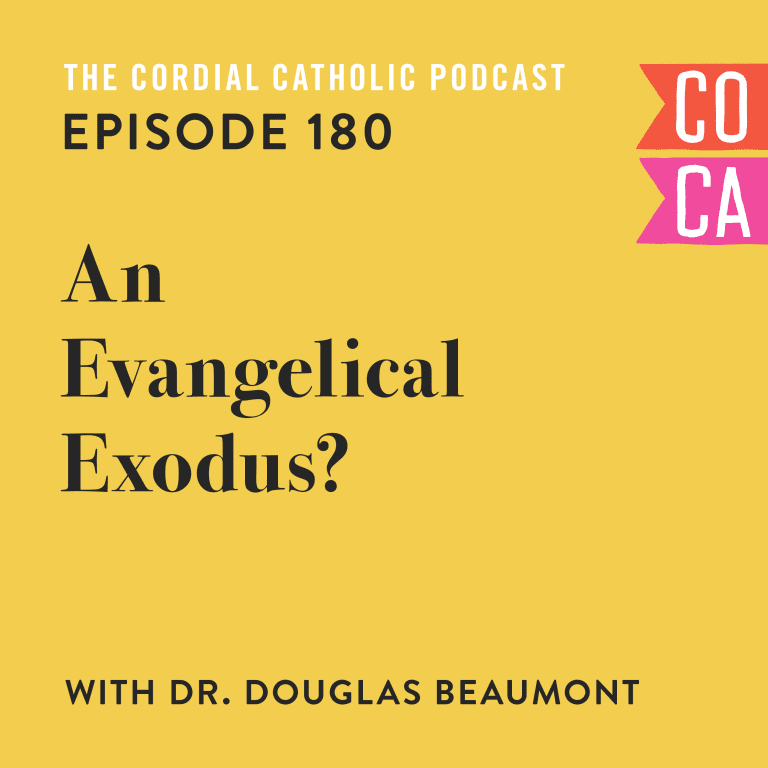
Dr. Peter Kreeft is a brilliant theologian, philosopher, and a Evangelical Protestant convert to the Catholic faith.
I’ve listened to several of his lectures, read many of his articles, and become a devotee. He’s got a lot of great stuff to say, and he isn’t afraid to say it. His appeal, to me, is that Kreeft is not a man who’s afraid to mince his words.
Still, I was floored by a comment he made in a lecture on ecumenism—that is, his view on how to restore Christian unity. A task I see, and many see, as absolutely critical in our age.
Without compromising the integrity of the Catholic Church, and the truth of Catholic doctrine, Kreeft said, simply, that if Catholicism is going to have any hope of attracting our non-Catholic brothers and sisters the Catholic Church must become more Protestant.
I’m convinced he’s right, and his remarks, his solution to the problem of ecumenism, has had a significant impact on my orientation towards Christian unity and the tenor of my prayers ever since.
His perspective utterly changed mine.
What’s Great About the Protestant Church
When Kreeft, and myself, say “Protestant Church,” I think we both have in mind Evangelical Protestantism purely for practical reasons: this is where our experience lies. So, mainline church-goers, this need not necessarily apply. Mainline Protestant churches, rather, could probably learn from these same lessons.
Evangelical Protestantism, says Kreeft, has a serious market cornered on relationship-building, discipleship, and evangelization. That is, Evangelical churches the world over are great at making people feel welcome (like they’re part of something bigger—because they are), teaching them how to become “little Jesus’s”, and equipping them to go out into the world and act accordingly.
Through successful programs of Bible Study, Sunday School, youth groups, and enriching fellowship, Evangelical churches build up a community that feels like a community. They’re accessible and welcoming.
Through this kind of dedication and devotion to study and fellowship, Evangelicals are equipped to live amongst the world and witness to Christ—to live a life oriented to Christ and make it known. And the job of being Christ to our fellow sojourners is taken seriously, for the most part. The Evangelical church is, fundamentally, missionary in its orientation. And it shows: it’s growing, or at least shrinking less quickly than other Christian orientations.
Finally, Evangelicals do worship music right. While both Kreeft and I, I’m sure, would never argue that Catholic worship music needs to be dressed up and contemporized there’s something to be said for the distinctive enthusiasm of Evangelical worship. It isn’t, I don’t think, about contemporary music but rather the devotion and expression of the Christian tradition. I can enthusiastically belt out Gregorian chant, an 1980’s Catholic hymn, or a contemporary Hillsongs tune with the same level of authentic devotion in my heart—it just seems to be a lot more present amongst the Evangelical churches.
Trading One Fullness For Another
Fundamentally, says Kreeft, it’s about trading one fullness for another, and that’s the dichotomy that we, as Catholics, must erase.
As an Evangelical Protestant convert to Catholic myself, I’ve been profoundly attracted to the idea of receiving the fullness of Christ in the Catholic Church: being able to receive Christ in the Eucharist, being able to receive more of a more of God’s graces through the sacraments, and reconnecting to the ancient Christian Church.
But, it’s a significant trade-off, and Kreeft agrees.
As my wife and I humbly seek out a Catholic parish that meets our needs in the same way as our Evangelical church does we’ve realized just exactly what the trading is all about.
Many parishes are sleepy: their worship music drones on with no one in particular joining in, their homilies are trite and without thread of a theme, their programming for families (something as basic as Sunday school) is largely absent, and they don’t feel like communities (everyone keeps their coats on and has a foot out the door by the end of Communion).
This is what Kreeft means by trading one fullness for another.
The fullness of God’s grace to be found in the Catholic Church can never be understated but would a Protestant, happy and fulfilled in their current community, trade their fulfilment—their worship, discipleship and fellowship—for that a fullness that looks less full than what they already have?
It simply won’t do.
Instead, Peter Kreeft argues that the Catholic Church needs to do what St. Pope John Paul II’s New Evangelization has been urging the Church to do for several decades now: essentially, become more Protestant.
Why the Catholic Church Must “Protestantize”
Ultimately, if the Catholic Church is going to appeal to non-Catholic Christians it has to “Protestantize.”
This does not mean, as Kreeft reminds us, that we jettison any of our sacred doctrines and dogmas. We don’t trade in anything to become more Protestant, we add on and build up the communities which already exist in our parishes; we make them more full.
I’ve seen this happening. In the parish that offers daily Adoration and then explains to its parishioners, in a clear and robust way, exactly what’s happening at Adoration and then who can resist that? I’ve seen it, too, in a parish that’s offering a lively children’s ministry, or outreaching to its congregation through adult faith nights. In my own local parish, an otherwise sleepy old parish, in the Daily Mass and, beforehand, the praying of the Rosary which has been packed but, sadly, not well advertised and therefore not as packed as it could be.
I’ve seen parishes bucking the trend, the mentality, that just because the church is here people will come. This is, increasingly, not the case.
Just because the Church is there, people will not automatically come.
And, incredibly, the parish is not just the church building.
Catholic churches, and we Catholics within them, must make strides first to understand our own faith and then to live it and explain it. This is, chiefly, how we become more Protestant, more Evangelical. By understanding and living out our faith; not by merely adopting a culture. Those Catholics—the cultural Catholics—are doing far more harm for the name of Jesus than they are, often, doing good.
Peter Kreeft’s challenge to the Catholic Church—and to us Catholics embracing the New Evangelization—is to undertake a drastic shift in how we view our ecumenical mission. Without losing our Catholic identity in our ancient dogmas, doctrine, and the sacraments we must become more community oriented, more focused on discipleship, and drastically improve our outward-facing evangelism.
We must eliminate the need for non-Catholics to choose, as Kreeft puts it, between one fullness or another.
The ultimate ecumenism—our ultimate embrace of Jesus’s prayer for us to be one—must result in a Church which is both Catholic, retaining the sacraments given to us by God, and equally Evangelical, with an orientation towards community, discipleship, and evangelism. This is, of course, the best of both worlds. This is what we should strive to attain. This is what Christ prayed for, and this is why the Catholic Church must become more Protestant.












